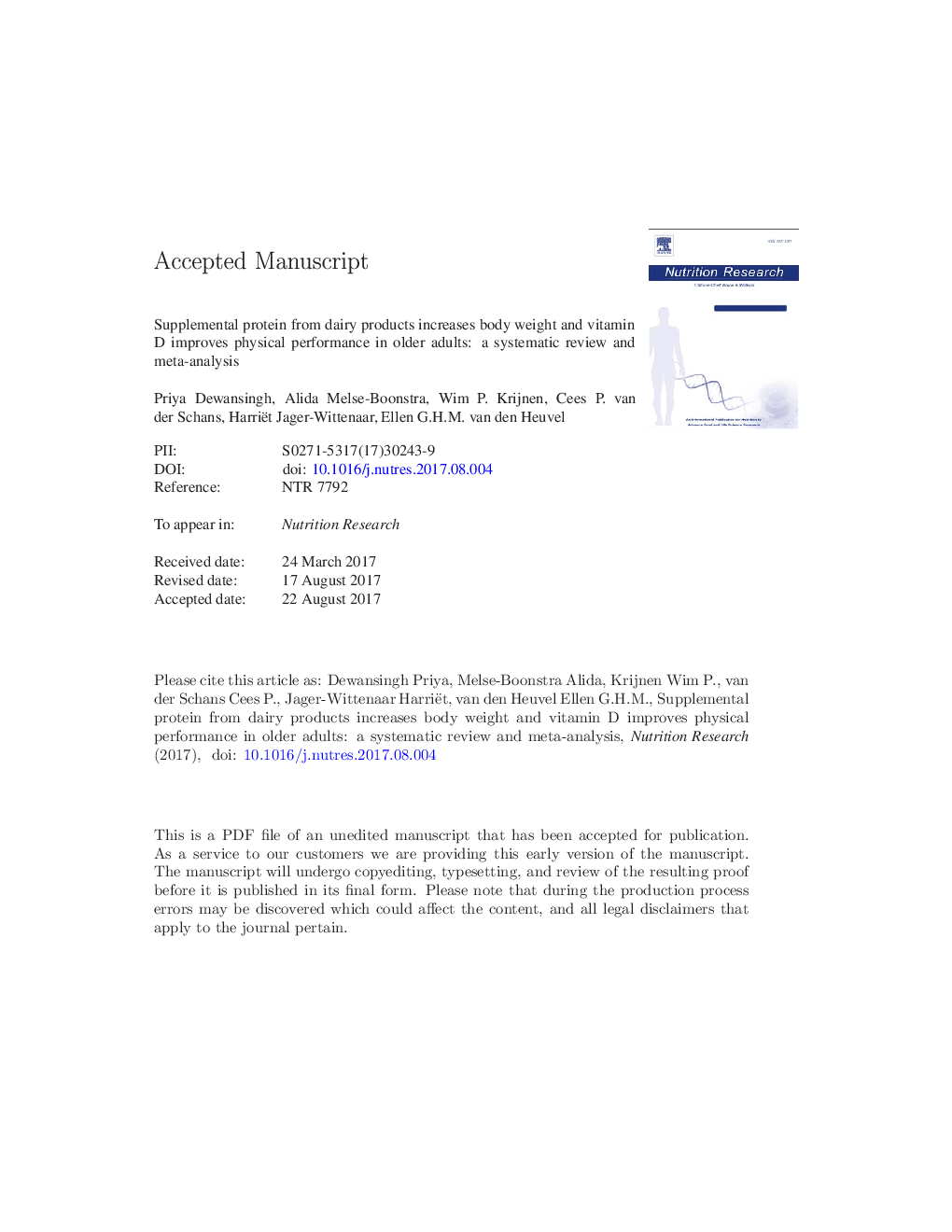| Article ID | Journal | Published Year | Pages | File Type |
|---|---|---|---|---|
| 8634311 | Nutrition Research | 2017 | 64 Pages |
Abstract
The purpose of these systematic review and meta-analysis was to assess the effectiveness of dairy components on nutritional status and physical fitness in older adults, as evidence for efficacy of the supplementation of these components is inconclusive. Scopus and MEDLINE were searched. Main inclusion criteria for articles were as follows: double-blind, randomized, placebo-controlled trials including participants aged â¥55 years who received dairy components or a placebo. Outcome measures were nutrient status (body weight and body mass index) and physical fitness (body composition, muscle strength, and physical performance). Thirty-six trials with 4947participants were included. Most trials investigated protein and vitamin D supplementation and showed no effect on the outcomes. Meta-analysis on the effect of protein on body weight showed a significant increase in mean difference of 1.13 kg (95% confidence interval, 0.59-1.67). This effect increased by selecting trials with study a duration of 6 months in which less nourished and physically fit participants were included. Trials where the participants were (pre-)frail, inactive older adults or when supplementing â¥20 g of protein per day tended to increase lean body mass. Only small significant effects of vitamin D supplementation on Timed Up and Go (mean difference -0.75 seconds; 95% confidence interval -1.44 to â0.07) were determined. This effect increased when vitamin D doses ranged between 400 and 1000 IU. Additional large randomized controlled trials of â¥6 months are needed regarding the effect of dairy components containing an adequate amount of vitamin D (400-1000 IU) and/or protein (â¥20 g) on nutritional status and physical fitness in malnourished or frail older adults.
Keywords
Related Topics
Life Sciences
Biochemistry, Genetics and Molecular Biology
Endocrinology
Authors
Priya Dewansingh, Alida Melse-Boonstra, Wim P. Krijnen, Cees P. van der Schans, Harriët Jager-Wittenaar, Ellen G.H.M. van den Heuvel,
